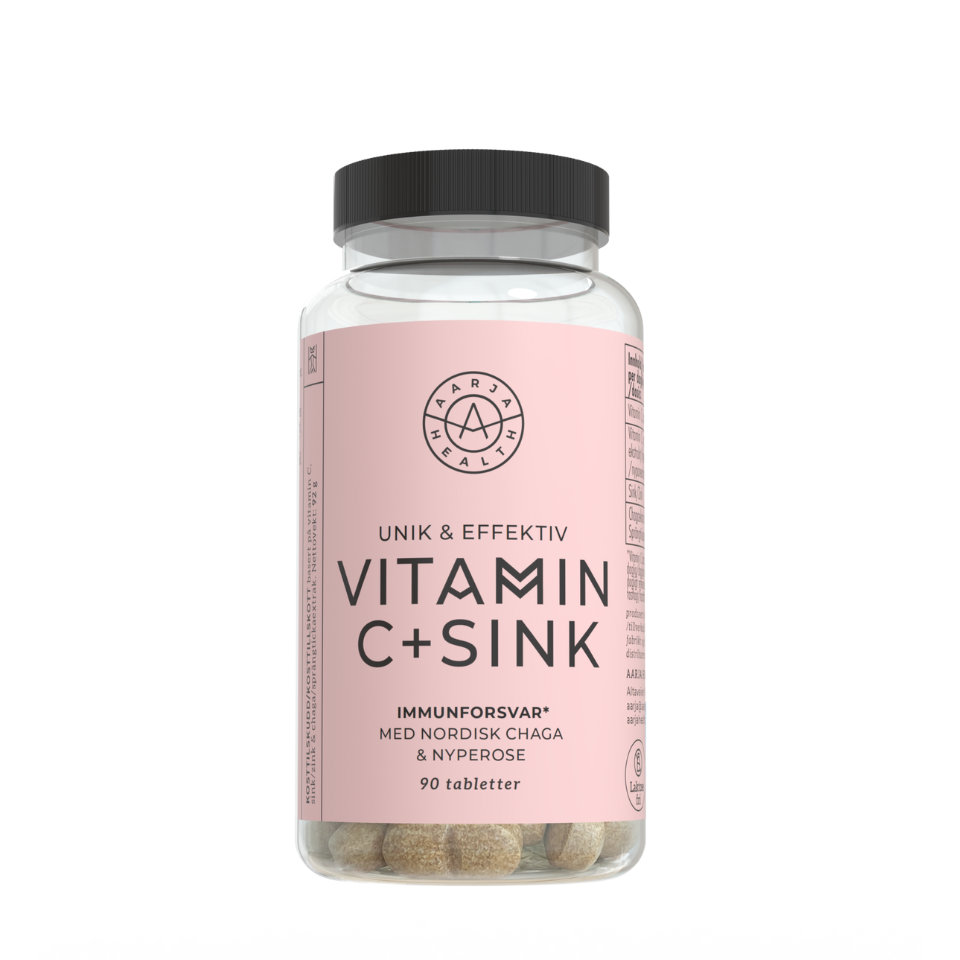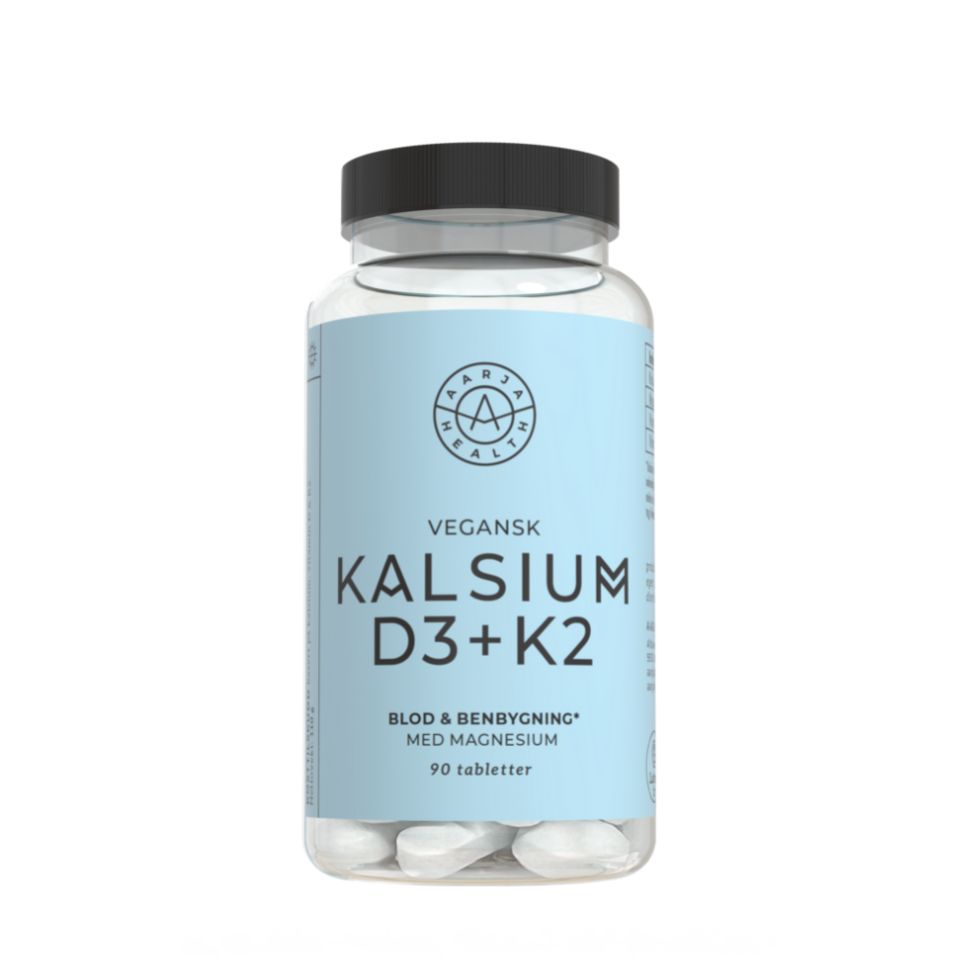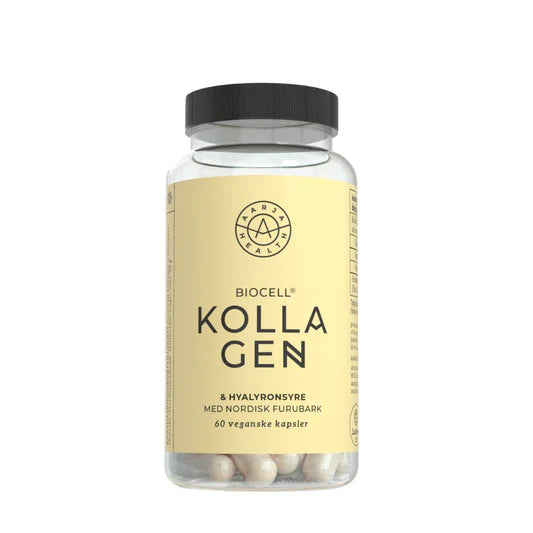
8 Simple Ways to Improve Your Immune Defense
Immunity is the body's ability to protect itself against pathogens. Immunity is usually divided into innate ie. natural immunity, and adaptive, i.e. acquired immunity. You can improve and maintain good immunity with these 8 simple ways:
1. Eat healthy and versatile
Make sure you have a healthy, varied and fiber-rich diet. Choose a lot of vegetables, berries, fruit and root vegetables as well as fish and whole grain products on your plate. They contain nutrients that are important for immunity, e.g.:
Vitamin D
Iron
Vitamin C
Vitamin A
Zinc
Vitamin B6
Vitamin B12
Folate
Copper
You get vitamin D from fish, zinc from whole grain products and vitamin C from, for example, berries and fruit. You can support your diet with nutritional supplements.
2. Take care of your vitamin D intake
Vitamin D plays an important role in the development of immunity. Especially people living in the Nordic countries do not get enough vitamin D, and vitamin D deficiency is common. You can get vitamin D from, for example, sunlight, fish and vitaminized dairy products. However, it is difficult to maintain adequate vitamin D levels through sunlight and diet alone.
Vitamin D is recommended to be taken as a dietary supplement, especially during the dark season. The recommended intake of vitamin D is at least 10 micrograms (μg) per day for both adults and children.
Add to your basket Aarja's Vitamin D3 with Lingonberry , Calcium, D3+K2 with blueberries, which contains 50 micrograms of vegan vitamin D3 :
3. Supports normal immunity with vitamin C and zinc.
Vitamin C and zinc contribute to the normal functioning of the immune system. Vitamin C can be obtained from berries and fruits, e.g. Good sources of zinc include whole grain and dairy products and meat.
An adult should get at least 75 to 100 milligrams (mg) of vitamin C per day. For children, the recommendation for vitamin C intake is 40 to 50 milligrams per day.
Vitamin C may be helpful in preventing the flu, especially among athletes. If the flu strikes, you can temporarily take higher doses of vitamin C and zinc to possibly shorten the duration of the flu and relieve symptoms.
Buy now Aarja's Vitamin C 500 which also contains zinc and chaga :
4. Spend time outdoors and exercise regularly - but don't overdo it.
Keeping fit helps improve immunity. Exercise is a great way to blow off steam and increase your stress tolerance. Exercise also increases the production of happiness hormones, while reducing the production of stress hormones.
It is good to exercise and spend time outdoors regularly. Remember to be active daily by, for example, taking the stairs instead of the elevator. Do cardio 2-3 times a week. Also allow time for recovery to maintain balance.
However, remember not to overdo it, as too hard exercises increase the infections. An overtrained body enters a stressful state, which weakens immunity. Strenuous exercise during the outbreak of an infection slows down the healing process and can make the flu worse than usual.
If you are sick, you should take a break from sports and rest. When you have the flu, it's important to remember that "all good things come to those who wait" and return to normal activities only after a few days without fever.
5. Get enough sleep
Sleep has no direct effect on immunity. However, lack of sleep alters the function of the hormone and immune system as a stress response, which in turn leaves you vulnerable to infection. When you sleep, the body recovers from the stress and injuries of the day.
The majority of adults need 7-8 hours of sleep. The quality of sleep is important, as non-continuous sleep is not refreshing. A healthy diet, an appropriate amount of exercise, avoiding alcohol and calming down before bed are good ways to improve sleep quality. It is also good to keep the bedroom temperature cool.
6. Avoid stress
This is often easier said than done, but avoiding excessive stress is important for immunity. Physical and psychological stress weakens immunity by altering the function of the body's immune system, thus making it easier for pathogens to enter the body.
Why then is it that a dutiful employee does not get the flu in the middle of an important work project, but gets sick afterwards, during the weekend or on vacation? Can stress protect against getting sick? Some studies have shown that short-term and low stress may even have improved immunity due to the secretion of adrenaline and other hormones in the body, but there is no certainty.
7. Invest in relationships
Taking care of your own health also means nurturing social relationships. Social relationships contribute to the health of the brain and mind, which in turn affects a person's holistic well-being and consequently immunity. Therefore, it is worth investing in the well-being of the brain and relationships.
A relaxing walk with a good friend while you get vitamin D from the sunlight and pick berries from the forest - it's an effective and easy way to improve your own and your friend's immune system!
8. Take care of good hygiene
Make sure to take care of good hand hygiene! Wash your hands thoroughly with soap when you get home, when you go to the toilet and before you eat. Disinfecting the phone and other frequently used items can be useful. It is also important to wash your hands and maintain good hygiene when you travel.
Sneeze into your arm or a tissue instead of your own hands. Throw the used tissue directly in the trash. An effective way to protect yourself from infection is to avoid crowded places and close contact with sick people.
When the flu eventually hits, rest and don't blame yourself.
No matter how much you exercise and how healthy you eat, you're unlikely to avoid infections forever. Some flu will eventually strike. A healthy adult can get about 2-4 flus per year, a child about 6-10 each year.







